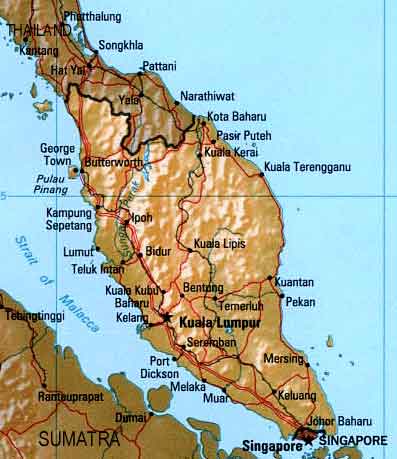
|
||||||||||||||||||
|
| ||||||||||||||||||
|
Formats | ||
Organised Sessions |
Each session will last 1:45 hours. A variety of formats are possible: the classic panel of 3-4 scholarly papers and 1-2 discussants, and the roundtable of up to six scholars talking informally about a topic. However, we encourage innovative formats that will stimulate discussion including the audience. Regardless of format, to the extent possible all sessions will try to establish dialogue across borders of nationality, discipline, region studied, or conceptual approach. The majority of sessions should have a good mix of presenters from various nations, and many sessions will compare a topic (perhaps a very specific one) across the Indian Ocean region (and the rest of the world) or treat a problem from several disciplinary angles. An Organised Session Proposal form is enclosed, which must arrive by 15 October 2003. It must include an abstract of no more than 250 words that makes clear the purpose, the content and the format of the session. If more explanation is needed a letter may be attached, but a complete abstract is required regardless. If scholarly papers are to be presented, a title and an abstract of no more than 250 words is required for each paper. All participants - the chair, presenters, and formal discussants if any - should be listed with all the requested information in the designated space. The chair or another person must be designated as the Session Organiser, who is responsible for conveying information in both directions between the session participants and the Conference staff. Please note on the proposal form any audio-visual or computer requirements. | |
Individual Presentations |
Individual presentations may be in one of two formats:
What is a poster exhibit-presentation? Posters may be displayed for the entire conference period, or only for a day or half a day, during which time the presenter will be there for discussion. Experience at many conferences has proven that posters are the best medium for intense discussion of a specific project by a few people.
A single form is provided for both types of Individual Presentation proposals. All requested information must be submitted with a 250 word abstract by the deadline of 15 October, 2003. | |
The Informal Programme |
An important goal of ICSSM 3 is to provide space for interaction among scholars, planned or spontaneous, outside the boundaries of the formal programme. Meeting rooms will be made available for a variety of purposes. These might include structured "panels" for an audience, committee meetings, planning sessions for future conferences or research projects, new book presentations, dance demonstrations, master classes, film or video screenings, receptions, parties, informal discussion groups and other activities. Activities will be open to all. We hope that many formal or informal groups of scholars (Indian Ocean region or around the world), particularly those joined by a common interest in a theme that spans the region, will find ICSSM 3 a hospitable venue. Indeed, it should be a good place to create such groups, perhaps via an informal reception or panel. Anyone may apply to hold such a "meeting in conjunction", and all appropriate applications will be accepted to the limits of available space, but preference for the most attractive time slots will be given to:
An Informal Programme Proposal Form is provided for applications for meetings in conjunction. Please provide a brief account of the purpose and nature of the meeting, plus an estimated number of attendees. These will be screened by the staff rather than the Programme Committee according to the criteria above. No meetings or events can be scheduled before or after the Conference dates. There also will be facilities available for exhibitors. Invitations and special brochures will be distributed separately. | |
Programme Committee |
Most members of the Committee will be nominated by the Internationa Centre for the Study of Skanda-Murukan, and have been active in those bodies. A variety of disciplines will be represented. There will also be members with expertise in the area of electronic resources and teaching/education. While Program Committee members are responsible for assuring there will be a sufficient number of presentations in their areas of expertise, including helping to stimulate or arrange for Organised Sessions, they are also quite prepared to go beyond their immediate specialisation to encourage boundary-crossing proposals. When the Committee makes its judgements, Organised Session proposals will be considered as a whole, rather than being rank-ordered according to region or some predetermined category. A list of all Committee members will follow up as soon as possible. | |
Process and Schedule | A few discussions about possible proposals within various groups and among individual scholars, including those in different countries, have already begun. The earlier the better but there is still plenty of time. We will also provide electronic forums for making connections, and consultations with Programme Committee members can start now. All proposals for the Formal Program must arrive at the ICSSM Secretariat by 15 October, 2003. We prefer electronic submissions, but proposals by mail or fax will also be accepted. One copy will suffice. The Program Committee will decide on proposals by mid-January, and notifications will follow as soon as possible. All participants in the Formal Program must pre-register for the Conference by October 15th, 2003 or their names cannot be included in the printed program. This rule is required by the schedule for printing the program and cannot be waived. Any alterations in participants or in titles of sessions or presentations must be submitted by the same date or they cannot be printed in the program. |
